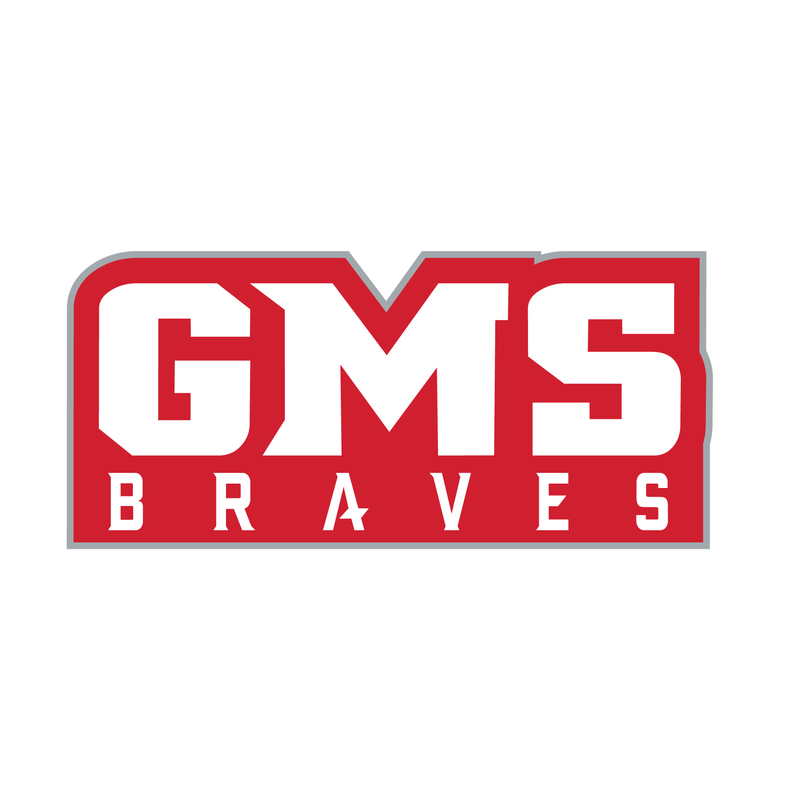
Student Resources

Student Resources
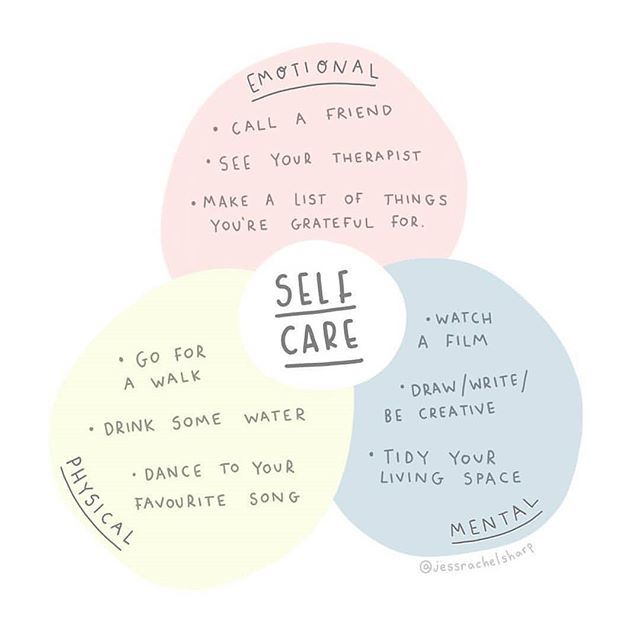
Self-Care
Self-Care: the practice of taking action to preserve or improve one's own health.
Why is Self-Care important: Self-care encourages you to maintain a healthy relationship with yourself so that you can transmit the good feelings to others. You cannot give to others what you don't have yourself.
Self-Care Resources: 10- Self-Care Activities for Students
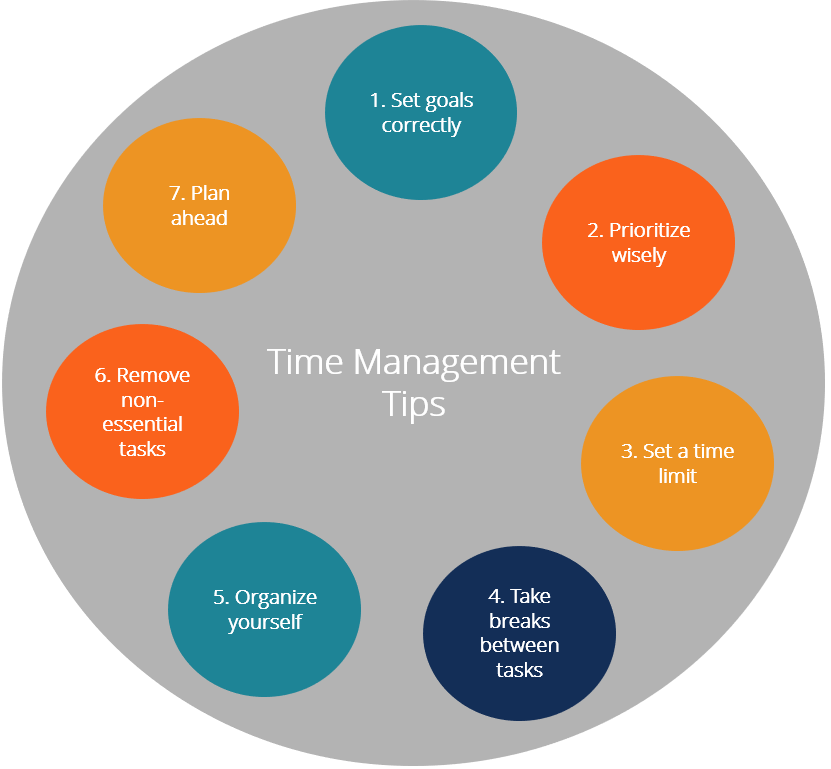
Time Management
What is Time Management: is the process of organizing and planning how to divide your time between specific activities.
Why is Time Management important: time management allows you to accomplish bigger results in a shorter period of time which leads to more time freedom, helps you focus better, allows you to be more productive, lowers your stress and gives you more time to spend with the people that matter most.
How to Manage Time:
(1) Prep for your day: Devote a few minutes at the beginning of each day to performing a morning ritual. Taking this time to prime your mind, clearing out negative thoughts and readying yourself to be productive in the day ahead.
(2) Prioritize your tasks: Take a look at your current pile of duties and tasks. Move the duties that will help you reach your goals to the top of your list, and push those that won’t to another day.
(3) Focus on the outcome: By focusing on results and not simply the action, you can accomplish more in less time. When viewed through that lens, your everyday work stops being a mindless slog and becomes a dedicated path that you’re on.
(4) Cut out distractions: You get a lot more done when you aren’t being pulled in a dozen directions. Silence your phone and/or put it somewhere it won’t bother you. Switch off your things that take away your focus. The more you can focus on the task at hand, the sooner you’ll complete it.
(5) Don’t multitask: Multitasking doesn’t help you get more done in a quicker amount of time – in fact, it’s quite the opposite. Dividing your attention between numerous tasks slows you down and clutters your mind, leaving you with more work to do.
(6) Entrust: Is there someone who could help do this task with you? We tend to want to do things ourselves to ensure they’re done right, but reaching out to someone who can help, frees up some time and develops growth through connection.
(7) Give Rewards: Set reward goals for yourself. For example, tell yourself you’ll eat a snack when you finish reading chapter five of your book for language arts. Or decide that you’ll open Netflix and watch one episode of your favorite show. Giving yourself rewards when you finish a task not only feels good but also wanting to get the reward gives you the motivation to finish that task quickly and well.
(8) Taking Breaks: Just like rewards, breaks feel great and have major benefits to your productivity. Taking a break after finishing a task will give your brain and body the rest they need in order to keep working. Breaks also give you the opportunity to check in with your friends or do other fun things you enjoy without taking time away from your scheduled activities. When you work with breaks, be sure to stick to your schedule.
Time Management Resources:
Manual: Sticking to a Schedule
Online: Schedule Builder
Study Tips and Homework Planning
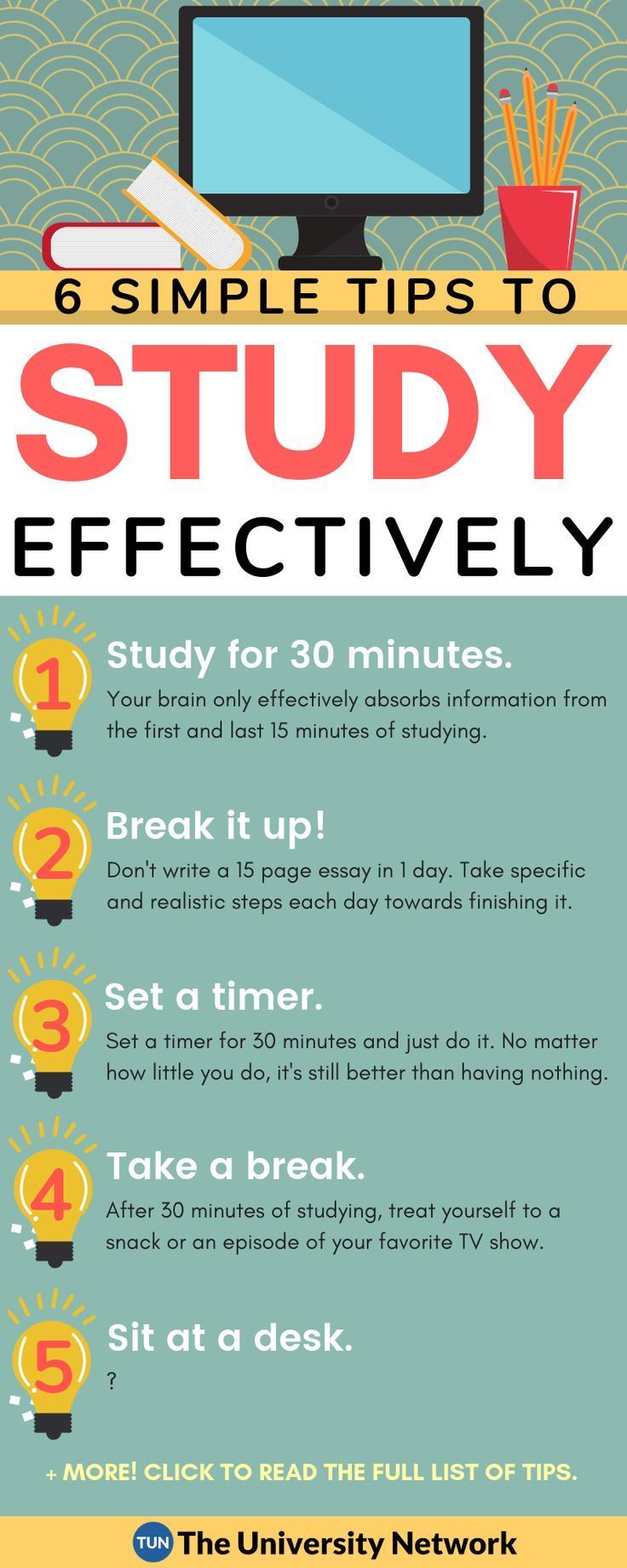
Studying
The Study Strategies Student List helps students reflect on their current habits when it comes to studying for tests. Good for the student who may not know how to study and/or cannot explain how they study for a test. Students will need to seek help from teachers with this sheet.
The Study Plan Template helps students to think through the resources and materials they should use to study for upcoming tests. Good for students who need to develop study routines and consistency with studying.
Note-Taking Strategies give examples of different styles of note-taking. Students can try each to figure out what works best for them.
Reading Comprehension Strategies helps students ask questions while reading to check for understanding. This also gives suggestions for annotating text to help with reading comprehension.

Homework
The Homework Planning sheet focuses on developing time management skills. Good for the student who has after school programs to juggle with homework.
The My Homework Plan creates a template or routine for how homework will be approached each day. Good to practice on this form and then continue in the student's planner each week.
The Homework To Do List focuses on building consistent homework routines. Good for the students who is often missing homework assignments and/or struggling with organization.
The School Materials Checklist is to make sure students have everything they need for school. This was created because we hear so often, "I did my homework, but I forgot it at home." Organization is promoted through consistent routines.
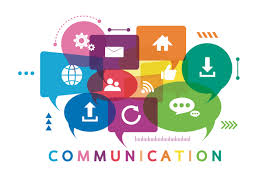
Communication
The Email Communication Tips sheet reminds students that they should be clear and courteous with their written communication to teachers/staff members. Good for students who need to develop their advocacy skills.
Know your communication resources:
Google Classroom
Student Square
Phone call
Zoom Meetings
FOR PARENTS TO BRUSH UP ON STRATEGIES, RESOURCES, AND DISCUSSION POINTS WITH YOUR CHILD:
